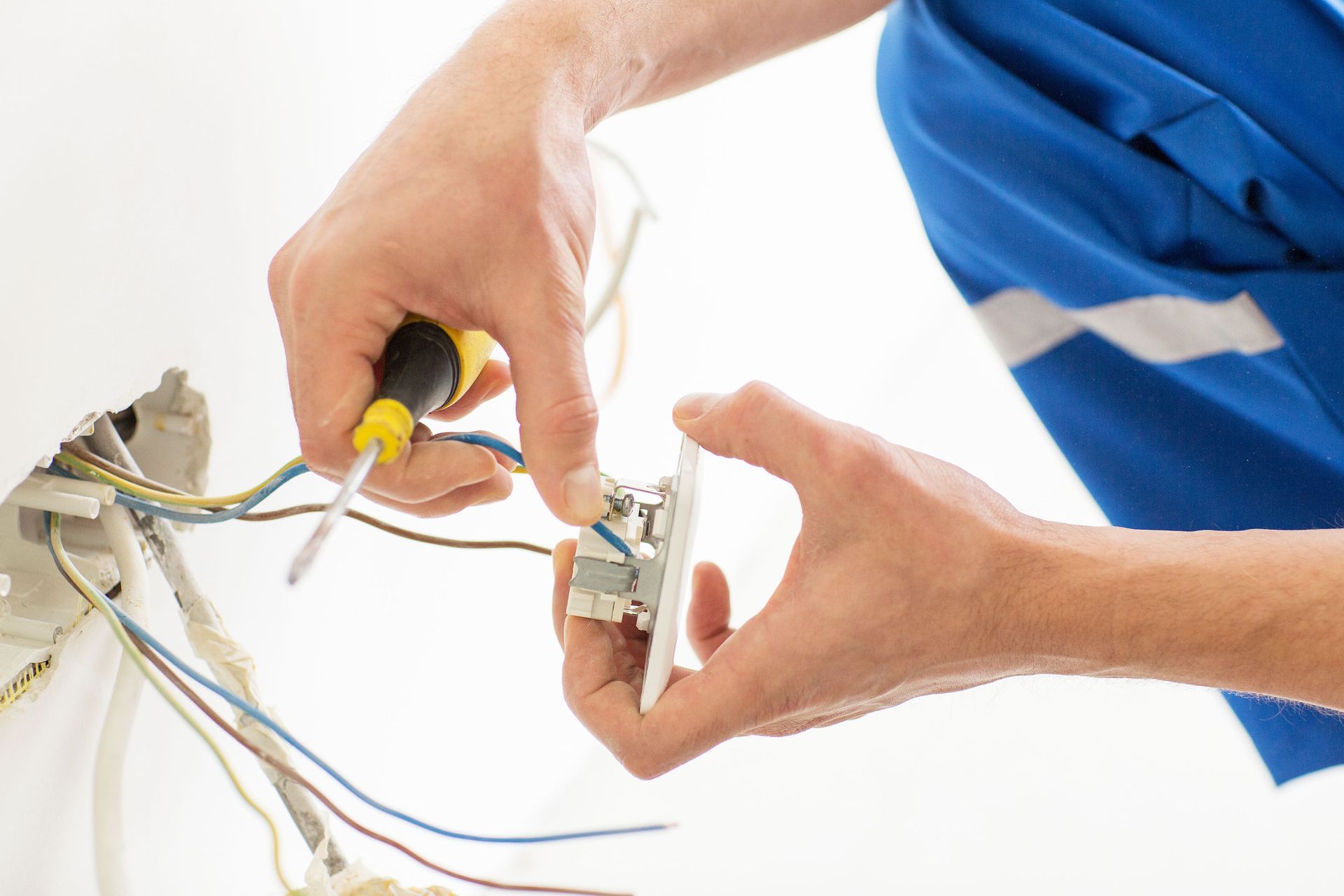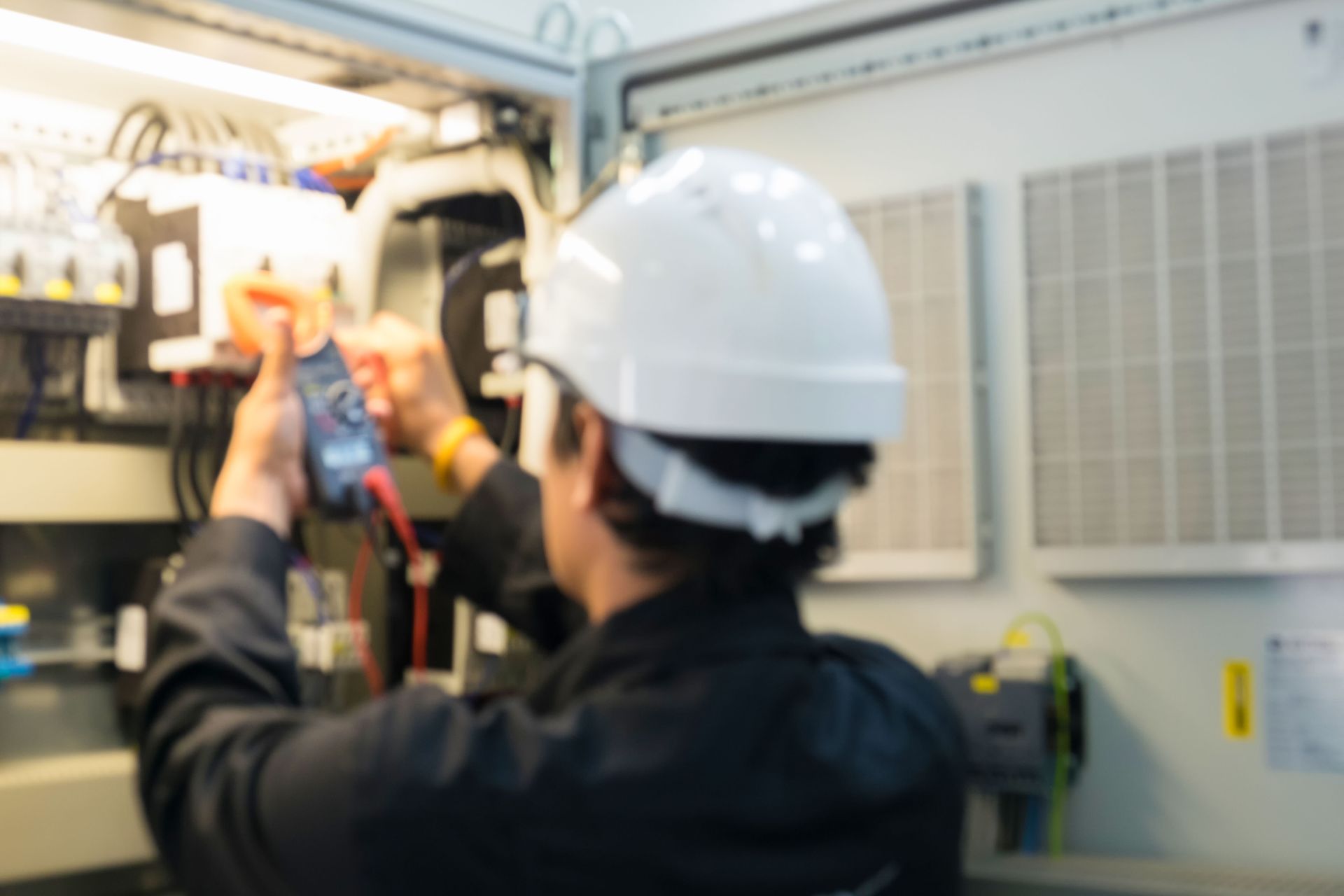October 24, 2025
Commercial electricians play an essential role in new construction projects. They are responsible for planning, executing, and maintaining electrical systems that are efficient, safe, and compliant with industry standards. From reviewing architectural plans to the final inspection, their work ensures that modern buildings operate effectively and sustainably. Their expertise directly influences functionality, safety, and energy efficiency. As the demand for energy-conscious and smart buildings continues to grow, the role of electricians becomes even more critical, making electrical work a cornerstone of successful construction. In this article, we will explore how commercial electricians contribute at every stage of a project — from planning and installation to advanced technology integration and ongoing support — with electric services tailored to commercial, industrial, and agricultural projects.
Plan Electrical Systems With Precision
Planning is the foundation of every successful construction project, and commercial electricians are deeply involved in this phase. By carefully analyzing building plans, electricians determine where electrical systems will be integrated and identify potential challenges early. Each building type, whether a commercial complex, industrial facility, or agricultural operation, has distinct electrical needs. Understanding these nuances ensures that electric services will meet operational requirements efficiently and safely.
During the planning stage, electricians collaborate closely with architects and engineers to align electrical layouts with the building's design vision. They also evaluate material and technology options, balancing durability, energy efficiency, and cost-effectiveness. Choosing the right materials, including wiring, conduits, panels, and circuit breakers, ensures long-lasting performance while supporting short-term and long-term goals. Incorporating energy-efficient systems not only reduces operational costs but also contributes to sustainable building practices.
Cost estimation and budgeting are critical elements of planning. Electricians provide detailed projections for materials, labor, and technology expenses. Their expertise allows them to identify opportunities for cost savings while maintaining system quality. By offering proactive solutions, electricians help construction teams manage budgets effectively and prevent costly delays or overruns. This combination of technical insight, material selection, and financial planning sets the stage for smooth project execution and effective electric services.
Install Wiring and Electrical Components With Expertise
Once the planning phase is complete, electricians focus on installing wiring and electrical components. Interpreting wiring schematics is essential, as these diagrams guide the placement and connection of all electrical systems. Correct interpretation prevents errors, optimizes performance, and supports both safety and efficiency. Electricians also use advanced digital tools to visualize and refine these schematics, ensuring every component is positioned accurately.
Electrical conduit installation protects wiring while maintaining organized pathways throughout the building. Proper conduit placement avoids interference with plumbing, HVAC systems, and structural elements. Electricians select conduit types and sizes based on circuit load, environmental conditions, and safety regulations, ensuring compliance and longevity.
Lighting systems are another major aspect of installation. Commercial electricians determine the best locations for standard and emergency lighting to provide sufficient illumination, maintain safety, and support energy efficiency. Integration of smart lighting systems allows building occupants to adjust brightness, automate schedules, and reduce energy consumption. Power distribution units (PDUs) are carefully installed to manage electricity flow efficiently across multiple circuits, with intelligent PDUs offering real-time monitoring and adjustments to prevent overloads.
Adhering to safety codes is critical in all installations. Electricians regularly update their knowledge to comply with evolving building codes, electrical standards, and energy regulations. Following these standards protects both the construction team and the end users while ensuring the building passes inspections seamlessly. Through skilled installation and thorough compliance, electricians deliver reliable electric services that lay the groundwork for a functional and secure building environment.
Integrate Advanced Technologies With Modern Solutions
Modern buildings require more than traditional electrical systems. Commercial electricians are integral in implementing advanced technologies that improve building performance, reduce energy usage, and enhance operational efficiency. Smart building systems, including automated lighting, HVAC controls, and energy management platforms, enable building operators to monitor and adjust systems with ease. Electricians are responsible for installing and programming sensors, controllers, and smart devices, ensuring all systems communicate effectively.
Renewable energy integration is increasingly common in new construction projects. Electricians help install solar panels, wind turbines, and energy storage systems that reduce carbon footprints while providing cost-effective electricity alternatives. They collaborate with engineers and energy specialists to determine optimal placement, connection, and grid integration. These solutions support sustainability initiatives while contributing to long-term operational savings.
Energy management systems (EMS) allow building operators to track energy use, identify inefficiencies, and make data-driven adjustments. Electricians install monitoring devices and control systems, ensuring seamless integration with existing infrastructure. Collaboration with IT teams is often required to connect EMS to communication networks and building management systems. This enables real-time data collection, analytics, and automated energy optimization.
Planning for long-term technological upgrades ensures buildings remain adaptable to emerging systems. Electricians design electrical frameworks that accommodate future expansions, equipment updates, or smart system enhancements. According to NECA, new construction revenue has risen to 36.6%, reflecting the growing demand for electric services and the value of advanced electrical expertise in modern construction projects.
Support Commercial, Industrial, and Agricultural Operations With Electrical Work
Electricians provide specialized electrical work across commercial, industrial, and agricultural facilities. Commercial buildings require flexible layouts, energy-efficient lighting, and robust power distribution to support tenants and operations. Industrial projects often demand high-capacity electrical systems, motor controls, and heavy machinery integration. Agricultural facilities need reliable electrical infrastructure for irrigation, ventilation, and climate control systems.
Our team at Slater Electric LLC has extensive experience delivering electric services across all three sectors. We collaborate with construction managers, project owners, and engineers to provide solutions that meet each project’s specific needs. By offering tailored systems, electricians ensure efficient operations while maintaining safety and compliance. From initial planning to ongoing maintenance, these services support both short-term functionality and long-term performance, guaranteeing that facilities remain productive and adaptable over time.
Coordinate With Construction Teams
Collaboration with construction teams is vital for seamless project execution. Electricians coordinate schedules with contractors, project managers, and other specialists to ensure that electrical installations occur on time and integrate smoothly with other phases of construction. Clear communication and regular updates prevent delays and allow for adjustments in real time.
Electricians also provide guidance to construction teams on electrical requirements, load capacities, and system limitations. This coordination reduces the risk of conflicts with other trades, supports efficiency, and ensures that all electrical systems function as intended. Proactive oversight and task synchronization maximize both productivity and safety, making electric services an integral part of every construction project.
Ensure Long-Term Maintenance and Reliability
Beyond installation, electricians contribute to the long-term reliability of building electrical systems. Preventative measures, regular inspections, and performance monitoring are essential components of ongoing electric services. These actions help identify potential issues before they become significant problems, reducing downtime and maintenance costs.
By establishing comprehensive maintenance plans, electricians ensure that lighting, wiring, PDUs, and renewable energy systems remain operational and efficient. Coordination with facility managers and IT teams further supports system optimization. Long-term planning for upgrades and expansions ensures that buildings remain modern, energy-efficient, and fully functional over decades of use.
Electricians provide indispensable electrical services for commercial, industrial, and agricultural new construction projects. From planning and installation to advanced technology integration and long-term maintenance, their expertise ensures buildings are efficient, safe, and future-ready. At Slater Electric LLC, we take pride in delivering professional electrical work that aligns with each client’s goals and long-term vision. For construction projects that demand reliable and expertly executed electrical solutions, contact Slater Electric LLC to schedule a consultation and experience comprehensive electric services designed to power your success.







